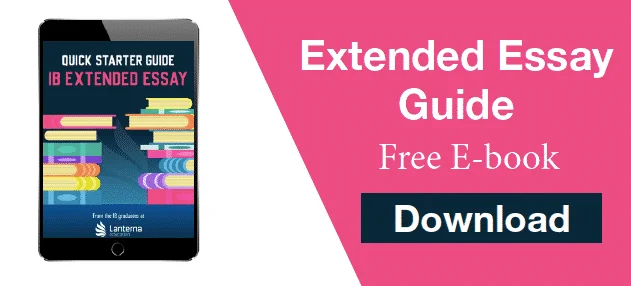I’ve seen hundreds of successful IB students in the past and read lots of successful essays – and written a few of my own! What I’m going to do here is share with you a few tips that the most successful students always seem to use when writing their essays. Students who get 7s don’t have magical powers, they just use a few simple rules to get awesome grades in the IB. Let’s look at how you can do it too!
1) Keep It Simple
Although your essay might have lots of good evidence and be very interesting the overall structure should be simple. A clear simple argument, which makes a good point and supports it well is always going to be better than a long complicated argument which confuses the reader. So how can you tell if you have a clear simple argument? Try to explain your point to someone in a few sentences. You might sum up your essay like this: ‘my essay argues that since the collapse of the Soviet Union the USA has continued to fear and suppress the Russian government.’ If you can’t sum your essay up like this, then it might be that you’re not really sure what your argument is and you should know what you’re talking about!
Check out this TED talk on the value of simplicity https://www.youtube.com/watch?v=eWczWFPMA7o
2) Make a clear plan
You should have an argument you want to make and should know what this is (see point 1). Then you need to start fleshing out your argument. What evidence supports your idea. Who agrees with you, and who disagrees. Why are those people who disagree with you wrong? Lay out your argument logically, step by step. So if you’re going to argue that German farmers would suffer if a certain economic policy was imposed on them, you might like to start by explaining the situation those farmers are in. You might then explain how the policy works. You could then explain why it would harm the farmers. You could draw some examples of how a similar policy has hurt French farmers. Finally you might deal with some critics, who would disagree with you. Start with what you want to show then prove it step by step.
Now watch this 1 minute motivational video on the power of planning https://www.youtube.com/watch?v=2jAE-a7nLXw
3) Logically show how your points support your argument
You should make it very clear how every point relates back to your main argument. Let’s say you are arguing that a poem is about murder and jealousy. It is not enough to say ‘the author uses lots of red and green imagery in the poem’. You must be very clear ‘the use of red and green imagery is symbolic of feelings of anger and jealousy’. The key is to imagine that your reader isn’t very smart and needs you to make everything very clear to them. If you do this you know your argument is clear – and this is very important.
4) Write the Introduction
Remember, your introduction should do twothings. One is to hook the reader in – you can do this with an interesting fact, or quote. The second purpose is to give them an idea about what they’re going to read. To let them know what to expect so your argument is easy to follow.
You might be wondering why this is point 4! Lots of successful students like to write the introduction after they’ve written the main body of their argument. This is because, for many students, their arguments change as they write and think about them. Only when they are finished can they write a really convincing introduction. So consider writing your introduction after your main essay is done!
5) Check, check and check again
Read over your essay before you hand it in, check for spelling and grammar. Get someone else to check it and help you make it better. If possible find someone who is awesome at your subject and ask them to check your work to make it even better. Then ask someone who knows nothing about your subject to read your essay. If they can understand it you know it’s really clear, which is vital.
Now hand it in! When you’re satisfied, don’t delay, just give it straight in. And finally, when your teacher gives you feedback, listen to what he or she says and if you’re confused, ask him or her to clarify.
If you follow these steps you’ll find your next essay will be getting those higher grades and will be able to score more than ever on your next assessment!
Now continue refining your IB skills by learning how to write a stellar Extended Essay!
Step by Step – The Extended Essay!



